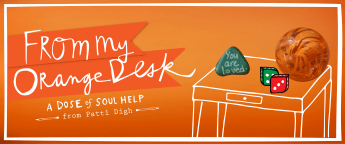There is a moment, often quiet and unannounced, when the veil of self-focus thins. You're sitting in a café, watching a man stir sugar into his coffee with unusual precision, or driving past an apartment building lit up at night, each window a tiny universe. And it hits you: Every person you see—every face that passes by on the street, every driver at the stoplight, every voice behind a closed door—is living a life as vivid and textured and intricate as your own. That moment has a name: sonder.
Coined by John Koenig in The Dictionary of Obscure Sorrows, "sonder" is “the realization that each random passerby is living a life as vivid and complex as your own—populated with their own ambitions, friends, routines, worries and inherited craziness—an epic story that continues invisibly around you like an anthill sprawling deep underground, with elaborate passageways to thousands of other lives that you’ll never know existed, in which you might appear only once, as an extra sipping coffee in the background, as a blur of traffic passing on the highway, as a lighted window at dusk.”
It's not just empathy or imagination. It is the destabilizing, awe-inducing awareness that the world is not your story alone. I didn’t use the word “sonder,” but used the concept in my TEDx speech in Indianapolis years ago, “Grant Specificity to the Other.”
We spend so much of our lives inside the narrative of me: my plans, my feelings, my losses, my joys. This self-centeredness is not necessarily narcissistic—it's human. It's how we survive, navigating the world from the only vantage point we’ve ever known. But sonder cracks that lens. It shifts the frame. Suddenly, the barista isn't just background noise; she's someone whose mother might be sick, who might be in love, who might be on the edge of something new or healing from something old. That man with the sad eyes on the train? He has a name, a history, a home, and a heart that once beat wildly for someone else.
There’s both beauty and sorrow in sonder. Fractal beauty, in the staggering multiplicity of lives overlapping and intersecting without ever fully touching. Sorrow, in the distance that remains between us. No matter how much we love, we will never fully live inside another’s skin. We are ships passing, sometimes pausing at the same port, sometimes brushing hulls in a moment of intimacy, but ultimately separate vessels.
And yet, sonder can be a call to connection. Once you truly feel it, you begin to look at people differently. You pause before judging. You soften in the face of someone’s anger, recognizing that their outburst may be only the surface crack of a deeper pressure. You become more curious, more humble, more willing to listen. You begin to ask questions instead of assuming answers. Yes, even for the people you might love, but don’t like very much.
Sonder reminds us that we are both small and significant. Small, in the scope of billions of stories unfolding at once. Significant, in that our story is also one of those threads worthy of telling, of hearing, of being known.
It is a form of grace, really, this sudden awareness of the unseen interiority of others. A softening of the ego, a swelling of wonder. If we let it, sonder can make us better neighbors, lovers, citizens, and friends. It can move us from the soliloquy of our own lives into the great, polyphonic chorus of being human.
And in that chorus, none of us sings alone.
Love,
Patti






I wish I could share this with the people in their rooms lit up at night, making worlds I'll never know. You're right. It's not an act of imagination so much as a recognition of vast mysteries. With deep appreciation for what you do, what you know, and what you show.
In this time when empathy is considered weakness, this is a powerful way to reframe what matters and how we're meant to be with each other.